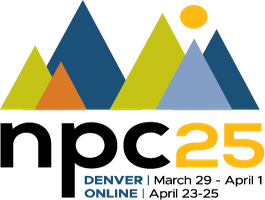Saturday, April 13, 2019 from 2:45 p.m. - 4 p.m. PDT
Location: 2003
LEARNING OUTCOMES
- Follow a template for building partnerships between their DOTs, MPOs, and city officials to enhance freeway reconstruction projects to create vastly improved neighborhood connectivity.
- Understand the many types of enhanced bridges and caps that can be considered to better connect neighborhoods divided by freeways.
- Leverage freeway projects to improve connectivity, complete streets, economic development opportunities, sustainability, social justice, placemaking, quality of life, and neighborhood identity and pride.
MORE SESSION DETAILS
Capping highways is gaining national attention as a preferred approach to reconnecting neighborhoods severed by interstates. While massive park caps have gained national attention, such as Boston’s Rose Kennedy Greenway (“Big Dig”) and Dallas’s Klyde Warren Park, there are smaller, more achievable bridge cap and crossing designs that are very successful in knitting neighborhoods back together.
This session highlights the Columbus, Ohio, approach, where more than 14 bridge crossings are being rebuilt over the I-70/I-71/I-670 innerbelt trench through downtown. In response to substantial community engagement, multiple bridge cap types (building, park, transition) and enhanced bridges (gateway and neighborhood) were designed that enable every neighborhood along the four-mile section to benefit from an enhanced connection. These represent an array of achievable improvements that can be applied in other cities.
Representatives of Ohio DOT, the city, and project team planners discuss the various cap and bridge designs, community involvement, social justice and economic development benefits, placemaking and neighborhood identity, implementation, funding, and lessons learned. This session is full of attractive graphics and visuals. See what former U.S. Transportation Secretary Anthony Foxx declared “a compelling example of how transportation projects can create or eliminate opportunity gaps in our nation.”This course is approved to offer 1.25 PDH (ASLA).
This course is approved to offer 1.25 LU|HSW (AIA).
Session Speakers

Christopher S. Hermann, FAICP
Organizer and Speaker
MKSK
Columbus, OH

Kelly B. Scocco
Speaker
City of Columbus Department of Public Service
Columbus, OH

Leslie Montgomery
Speaker
Ohio Department of Transportation, District 6
Delaware

Timothy S. Rosenthal
Speaker
MKSK
Hilliard, OH

William Murdock, AICP
Speaker
Mid-Ohio Regional Planning Commission
Columbus, OH
Activity ID: NPC198070

